Who is responsible for my attached roof system? - PODCAST TRANSCRIPT
November 23, 2023 at 12:00 p.m.Editor's note: The following is the transcript of a live interview with Kyle Nurminen from The Metal Roof Experts. You can Read the transcript below or Listen to the podcast.
Megan Ellsworth: Hello everyone. My name's Megan.
Lauren: And I'm Lauren.
Megan Ellsworth: And this is the AskARoofer podcast. And today we have a very special guest, Kyle Nurminen from the Metal Roof Experts. Hi Kyle. How you doing?
Kyle Nurminen: Hey, Megan. Good. I'm doing good today. Thanks for having me.
Megan Ellsworth: Yeah. We're so glad to have you on. So let's dive right in and have you just introduce yourself and tell us a little bit about what you do.
Kyle Nurminen: Okay. My name's Kyle Nurminen. I've been in commercial residential roofing for nearly 20 years now, most of which has been down here. I was kind of broken into back and back hurricanes so I've seen all types of roof system failures. I've worked for three of the top 15 national roofing companies. So I've had a considerable background in proactive maintenance, portfolio management, community association, phasing, big projects, so on and so forth and I spent a little bit of a hiatus there for a few years to specializing in coatings and now I'm with Total Roofing System and Dynamic Metals in southeast Florida focusing strictly on metal applications, although I have a portfolio or resume of all types of roofing, but I'm focusing strictly onto metal right now.
Lauren: Very cool. So today we are talking about attached roof systems. Can you tell us what an attached roof system is and where these are commonly seen?
Kyle Nurminen: So, there are multiple types of attached roof systems, but for the purpose of this conversation today, we're specifically talking about residential communities, condos, quadplexes, road, apartment complexes, duplexes and such, where any one unit, the roof system is tied into another. So a quadplex for instance, or obviously a duplex, roofing on slope, one half of the roof is over one residence and the other half is over another. So anywhere where if you try to re-roof just one unit, you're going to have an issue with the whole building not being re-roofed at the one time. So that's what we're focusing on today.
Lauren: Gotcha. Makes sense.
Megan Ellsworth: Amazing.
Lauren: That's what I have then in my condo.
Megan Ellsworth: Yeah. Totally. And I feel like that is so common. Like condos and town homes and duplex and quadplex are becoming more and more common. So I think this is a really important topic. So Kyle, when there's an HOA involved, who is responsible for the roof? The homeowner, the HOA, kind of both. Dive into that for us.
Kyle Nurminen: Well, that's the problem, Megan, is that it's not always consistent. Every community is different. Sometimes the HOA is involved on a limited level. They'll tell you what specifications you can put on your roof, but they leave you primarily responsible for all roofing. Some HOAs will handle proactive maintenance and repairs and maintenance to keep the roofs clean and do things like that as a community and then the re-roof would have to be for you. Some do it totally opposite where the community will ultimately re-roof, but any repairs in the meantime over your specific unit, you would have to incur that cost. And then there's HOAs that do it all and then there's HOAs and condo associations that have you solely responsible.
So that is what we need to have a discussion about today and I think people really need to understand that there are a multitude of differences and we're going to get to the end of this thing and ask people what questions they need to ask.
Lauren: Where would people look for that information? Would they just ask their HOA who's responsible for the roof? Would it be in their bylaws?
Kyle Nurminen: Yes. Yeah, yeah. It's going to be in their bylaws. Anytime you're looking to purchase in a community, you're going to want to ask what the association rules and regulations are, what involves the roofing. You also want to look at the timeline of the HOA and the roofing in the entire community. Often these are all built at once and they are becoming more and more popular because we are trying to corral our people. Let's not get political about it, but we're trying to build so we keep more people under one roof and it's more efficient for the builder, it's more efficient for construction, it's more efficient for everything, but not necessarily for the homeowner and the investor. So that's where it really gets complicated. So you need to ask those questions when you're looking into those types of communities. What am I responsible for? Some people hate HOAs. Some people love them.
You really need to know whether do you want to turn over that decision to an entire board of people that are retired or have knowledge from someplace else and not necessarily from this environment? You got to ask about the board. What is it made up of? It's people that live in this community that are making these decisions on your investment if the HOA is responsible for it. So a lot of homeowners say, "No. I want to be responsible for my roof system." However, what about your neighbor? Maybe your neighbor doesn't care about his and his is attached to yours. So this is where it really gets ugly when the HOA does not handle the roofing project. When you buy into a community that was all built in two years and all the roofs are now 20 years old and you're about to buy in it. So they're all getting ready for a re-roof. How's this going to go down? What's my additional cost going to be and what are my options going to be?
Megan Ellsworth: Yeah. Wow. So many things to think about when you're buying it. Also, if you already live in an HOA condo situation with this process. So how does the roofing process from your perspective change when there's an HOA involved for a homeowner?
Kyle Nurminen: Well, that's the first thing we have to find out. We have to find out what do they cover? How are these decisions made? So with 20 years in this field, I spend a lot of time, a lot of times if a community is large enough, they'll create a whole separate board or committee. They know their roofing's coming up and they'll start researching, "What are our possibilities? What are our options? What are we going to do here?" A lot of people want to go to metal because here in Florida, the wind uplift standards and the longevity are far superior and the energy efficiency. And if my neighbor has tile, his tile roof flies in a hurricane and hits my roof and damages my roof, I don't want any of that. We want it all to go metal, what have you.
However, a lot of people don't understand that there's a wide spectrum of metal roof applications. That there's the cheapest and then there's the most expensive and there's certain reasons why you would choose one or the other. So I get involved on the front end to help boards and these types of committees realize that and educate them in all the metal spectrum and realize that you're looking for something that's not going to take away from the property value. It's not going to take away from the community value. A lot of people don't realize that. They think because, "Oh, because you allowed metal in my neighborhood, I can put on a mill finish 26 gauge 5V roof," which is the cheapest roof you could possibly put on. It's going to look like a cheap tin can in the middle of this luxurious neighborhood.
And me as a purchaser, I'm going to drive through this neighborhood and see that and be like, "Is that what you're allowing in here because this neighborhood's going to go to crap. My property, my investment's going to go downhill." I help them come up with a specification of what they will or will not allow that can be a good compromise for everybody across the board. Boomers that want to have metal can have metal and still have a few options, but not necessarily the cheapest and you're not going to make them buy the most expensive necessarily as well, but you want to make a decision that's going to retain the value of the overall community.
Lauren: So yes. So going off of that, what has your experience been working with attached roof systems and HOAs in your professional experience?
Kyle Nurminen: There's two different extremes. Once if done properly, get a roof consultant in there to help educate. You can get consultations from multiple roofers. You have to keep in mind that roofers are good at what they're good at. They're going to push what they're good at. But overall, you have to have a consultant decide, "Of those contractors that do what they're good at, what is the best application?" Now that we've looked at the best metal applicators, best tile applicators and they're all telling us what they think is best. Now a roof consultant's going to say, "Overall for this community, this is the best specification to put out for bid."
And then you allow those contractors to bid that specification. Okay? You have to keep in mind that just because somebody owns a roofing company that has two trucks and works out of a garage in that neighborhood, that's first of all a conflict of interest or you have investors in there that just want a cheaper roof, they want to go with the cheapest option, those roofing contractors aren't necessarily qualified to phase a project of that magnitude. So you're going to be looking at larger contractors because larger contractors carry better credit and more overhead and more assets that they can leverage with the bank to handle a type of a project like this that some of these projects can go two or three years, phasing through a community on the re-roofs and you can be very flexible with how that is paid out and how that's paid out with the HOA and to the individual homeowners so that everybody can be happy with the end product as a compromise of what some people really want over here and what some people want, it's the independent party and a solution that's the best decision.
Or they can just let it fly and they can say that if it's a duplex community, "Okay. You have two condos under one roof." They need to at least say that, "Okay. Here's a specification of what we will allow, but we will only allow one building. The neighbors have to agree, the neighbors have to be able to re-roof that entire building." So what I have seen on the bad side is an incident right now, a prestigious master community here in Stuart, Florida and there's a little sub community within it, its own HOA. And there's a series of some 50 condos, 25 buildings and they allowed either standing seam metal, mill finish or the same tile that they have. And they said, "Every homeowner can make their own decision." So what's happening is the first thing that happened was the guy who owns two of those units in there that's an investor, his insurance was lapsing so he had to get a new roof on as an investor.
It was a big stress for him. So he wanted to go to the metal for the insurance breaks that he was getting and he went with the cheapest possible metal. And so now they re-roofed half of this condo and the fronts don't even match up. There's no even cut. There's no way to divide. There's no divider. There's no control joint separating one roof from the other. So they had to get into the neighbor's 22-year old tile roof, chomps all over it, peel it back so that they could waterproof over the ridge and kind of meet halfway in the middle of a valley with their metal, and then repair all the tile on the other side, but that roof is 22 years old. The more you disrupt that tile roof, the more you're tearing up the neighbor's roof. And now that neighbor is married to going back with the same profile, the cheapest profile, because it won't match.
No other roof system's going to match. Not only that, but you're voiding warranty along that tie-in anytime you do that. So it just opens up a can of worms for lawsuits flying all over the place, between homeowners, between investors, between HOA. We'll get into a little bit about that on liability of an HOA and the people on that board and those committees that are making those decisions. Another example is a quad community down here in Florida. I don't know if you've ever familiar with down here in Florida. I know you guys are all the way on the other side, but we have what are called the BASTA quad communities. They're like Xs, okay? And there's four townhomes in each one, but the inside of the X is a two-story townhome. Okay? So each L has their own little courtyard in the square of that X and they have a two-story duplex basically and all the utilities go to the center of that X.
So all your air conditioning units, your plumbing, your electrical, everything runs down the center and that's where the bathrooms are. So second story bathroom is over the first floor bathroom. So if your neighbor has a leak in their roof from their AC unit or something plumbing where it meets the roof, it goes into everybody's. There's no way to separate those four roofs. And some of these are on concrete decks, some of them are on wood decks, some of them are designed. So then they have a mansard all the way around and it's not much of a problem, but when they let those people try to take care of their own little X section, like they have a leak, they go up and they get their roof replaced, but they tie into somebody else's junk roof next door, then they replace their mansard roof, which is a high slope facial roof, mostly cosmetic, that goes from shingle and he goes to tile or to metal and everybody else goes with another shingle.
You can probably imagine that these communities will end up looking very, let's say, for lack of a better term, Beverly Hillbilly-ish very quick.
Megan Ellsworth: Yeah.
Kyle Nurminen: You can drive in the quad communities around here. There's one up in Vero Beach. If you're in southeast Florida, go up to Vero Beach and drive through this quad community. You can see them from satellite, you know where they're at. And it's horrible. So the rents go down and then the value goes down and then basically there was one just north of downtown West Palm Beach just recently that was finally leveled. It just went downhill, downhill, downhill until they just leveled it and now it's all brand new condo. So good for that new investor. He got cheap property 'cause he had to get rid of all that garbage, but what about all those people that invested in that garbage that wasn't supposed to be garbage?
Come up here to Stewart and go to Jupiter and see some of these BASTA quad communities where they put stone coated steel all over the mansards. They replaced all the flats all at once. They have nice screened enclosures on them. They have high-end landscaping everywhere, high value cars, people with really good solid communities, prime locations, premium rents they're getting in those communities. They're gated. They have security. They have everything, all because of the decision they made on the roofing 'cause they did it as a whole.
Megan Ellsworth: Yeah. That sounds like my worst nightmare with all the different roofing systems and the tile and the cheap metal. Oh my gosh. What a mess.
Kyle Nurminen: Yes.
Megan Ellsworth: When you were sharing the story about the half metal, half tile roof, what liabilities do the HOA board members carry when it comes to the roof?
Kyle Nurminen: See, I was actually—
Megan Ellsworth: With the homeowners as well.
Kyle Nurminen: Yeah. I can't say that the homeowners have too much of a liability other than the fact that if the roofer that they contracted destroys the neighbor's roof or damages the neighbor's roof, which they're going to do 'cause they're going to be trying to tie a new roof into an old roof, you end up personally homeowner to homeowner, but the decisions that are being made on these boards, that's why I really wanted to have a legal expert maybe attend this podcast, but the thing is, this is a national podcast and the HOA laws are different everywhere anyway. So I would only really be able to give you one specifically to Florida. So I wouldn't want anybody get misconstrued around the country. I think the biggest thing to keep in mind is you need to look into the HOA laws and when you take a position on a board, it's not just because you don't have anything better to do, you're retired and you just want to tell everybody what to do in a neighborhood and run around and give everybody tickets.
You get a lot of that in HOAs or they come from New York and they come down here to southeast Florida and they think that they know roofing. It's a totally different world down here. We're not dealing with snow and ice and freeze and thaw. We're dealing with thermal shock and hurricanes and very high UV that damages materials on the roof unlike anywhere else in the country. It's a whole different animal. And they come down here like they're the experts and they make these decisions that aren't for the best of the community. Now if I was a homeowner and they start allowing this, then I would be going after somebody. If I've started losing my property value because they started, "My neighbor put on this cheap metal roof and now I can't put on an expensive one that I know is going to hold my property value, I'm going to be taking a hit on my property value and somebody's going to have to pay for that because you took the decision out of my hands."
Yeah. When the HOAs want to only get limitedly involved but not go all in, it's not doing a justice to the community and the people's investments. So no matter where you're at in the country, you want to look into those things into your HOA law. Community Associations Institute is a really good resource. Everywhere, even in a region around Florida, CAI will have their local attorneys that are sponsors and they know all that regional stuff. So that's actually who I turn to, my local chapter, who they recommended to have this conversation with me, but then it dawned on me, like I said, it's going to be different everywhere. Tune into your local CAI chapter, Community Associations Institute, for resources on the legal side.
Lauren: That's great. Yeah 'Cause I myself wouldn't have known where to turn to. And kind of with that, if say for myself, if my condo complex was in need of a new roof, it's an attached roof system, what questions would you suggest homeowners like myself ask to the HOA and the board just in terms of figuring out the liabilities, making sure that they're getting multiple quotes, that type of stuff?
Kyle Nurminen: Yeah. Is the vote done by a community or is the vote done just by the board? That would be one. Okay. Who is currently on the board? Is there somebody in our community that has experience in this field that is on the board? What are those parameters? Does the HOA make the decisions or am I responsible for my own? And I'm sorry, but I would not go into a community where it was up to the homeowner and I'm moving into the neighborhood. I don't know my neighbor. I don't know who that neighbor's going to be. And then if I do know them and I'm in really good condition with them and we're not due for a re-roof for five to 10 years, who's to say that neighbor's still going to be there? So I'm sorry. There's too many options out there on the residential side in communities and it needs to be said. My private consultation is candid consulting.
My initials are KN. I keep it candid. I tell you like it is, whether it is what you want to hear or not. And people need to hear it and these communities need to hear it. There is one I'm talking to right now who they're going to do a one-time change in their bylaws strictly for the roofing. They've always for years had it phased out and they've allowed maybe six or seven out of 60 units be re-roofed individually. So they're already starting to see the decrease and also the decrease in life expectancy. So you're beating up these roof and you're tying into them twice on both sides and your 20-year roof is now a 10-year roof because your neighbors are beating them up when they're putting their roof on and you're beating up their roof. And so the investment is shorter and it costs you 35 to 45% more as a community as a whole.
This one bid I'm working on is basically about five and a half million dollars project, which you would think is a lot, but it's like 40 some buildings. But if you were to do it and break it out the cost per unit individually, it would take twice as long, your life expectancy would be half as much and it's going to cost you more like 8.5 million. I did the math for that community. So these are the types of differences we're talking about. Now owners are saying they can't afford to do it this way. Well nobody can afford to do it the individual way because your costs are so much greater. But as a whole, as a community, there's so many options that you can break out banking wise where you can really minimize that addition. It can be a one-time assessment at a much more minimal cost or it can be added to your HOA fee at a far greater cost and spread out over a longer period of time and that would carry that debt onto the new owner.
If you don't plan on staying there, you're not the one who has to pay for it. All that continues on your condo. So there's so many different banking options and finance options to do it that way and it greatly decreases your cost and it increases your property value. That's really the way to go.
Megan Ellsworth: Wow. So many good things to think about there.
Kyle Nurminen: Good things and bad things.
Megan Ellsworth: Yeah. Good things and bad things. If a homeowner is listening to this, hello homeowner, what are some things they should think about that you haven't mentioned before they buy a home with an attached roofing system or is there anything left to think about?
Kyle Nurminen: I don't think there is. Well one other thing. Okay. I'm glad you asked the question 'cause it did pop into my head. Talk to the neighbors. If you're looking to buy in a community, there are people roaming around that neighborhood that'd be happy to tell you about all the drama that goes on their board. And then there's the ones that can tell you all the good stuff too. If there's a good community, you could talk to anybody in that community and they'll just, "Ah," and be happy to tell you. Other ones might want to run and say, "Oh, don't go there." That's a bad sign. So yeah. If you're in the market and you are shopping in communities, condo [inaudible 00:23:14] or HOAs, just the bylaws are a little bit different in each. Once again, consult with your local chapter of your CAI and that should help you out. But yeah. Talk to the neighbors.
Megan Ellsworth: That is such a good piece of advice and actually a piece of advice that I received also when I started renting apartments and whatnot. Ask people you run into at the apartment complex, "Do you like living here? Is the management nice? Do they take care of what you need?" So that's some good advice there.
Lauren: Thank you.
Kyle Nurminen: I back it up.
Lauren: Great. Any other thoughts or advice or information to share with homeowners about attached roof systems, HOAs, navigating all of that? Anything else that pops into mind?
Kyle Nurminen: Yes. Although an HOA may hire a certain consultant to handle a project like this, you have to keep in mind that even consultants have their own interests. They have their own connections with their own manufacturers and their own contractors as well. So if you are on a board with a community and they've already decided that, "This is going to be our consultant," but you have another roofer that's really, really good at this application and is consulting on that behalf and you really want to consider that too, it's okay. It's okay. You don't have to go with that, "Yeah, you paid him. You paid him to do a lot of work. You owe him the pay to get one." But a lot of that, what he gets paid depends on who he sells it to or who gets the job. He may get more out of it by getting a certain contractor to do that job or a certain manufacturer. There's multiple ways they're bonused or commissioned.
You want to make sure that he has his fee paid for the work that he has done if you decide not to go with his recommendation. But you're free to consider other options. You're free to consider a full roofing contractor that is capable of doing its own consultation, talking about the bid that was already put together by the roof consultant. There's pros and cons on every option. Okay? That's the biggest thing to know is every roof system has its advantages and disadvantages. Every building in that community doesn't have the same set of circumstances. A hurricane comes through here and can level three of them and not touch the rest. It can hit one at this end and at this end or the ones that face a certain direction. So everybody's affected differently.
So it makes it really, really difficult. So don't limit yourself and zone it all in to just think that, "Oh, our hands are tied. This is what we have to do." So there's more package deals available. Not necessarily multiple roof consultants, but go with the roof consultant all together, but if you're getting something from the outside and it's totally different, but seems to make the same sense that the roof consultant's already saying, you're free to consider it. Put it up for vote.
Megan Ellsworth: Well said. Well, Kyle, thank you so much. You've given us so many nuggets of wisdom. I hope people out there listening have been taking notes and have walked away from this podcast with all sorts of goodies to go into homeownership with. So thank you so much for all your time and your wisdom.
Kyle Nurminen: It was a pleasure sharing. It's been very important. I'm passionate about it. I'm tired of homeowners being stuck between manufacturers and contractors and boards and everybody pointing fingers. We all just want to live and get along and love one another and the world needs more of that. So if we get our ducks in a row on the front end, everybody can be a lot more happier.
Megan Ellsworth: Yes. Well said.
Lauren: Definitely.
Megan Ellsworth: Absolutely. Couldn't agree more.
Kyle Nurminen: And I'm willing to help in any way I can. Even if you're out of state, I've worked for national roofing companies before, I can look at scopes of work. I can tell you what to look for, what questions to ask. I'm willing to help anyone anywhere as an unbiased. Any connection that I can make, there are plenty of people that live elsewhere in the country that have investments or contacts in Florida where that might be a referral for me one day. So I'm happy to help in any way I can.
Megan Ellsworth: Absolutely. Glad to hear it.
Lauren: That's wonderful.
Megan Ellsworth: Well, everyone, you can go find Kyle's contact information and more information on the Metal Roof Experts at askaroofer.com on their directory, as well as rooferscoffeeshop.com. So thanks everyone for listening and we will see you next time on the AskARoofer Podcast.


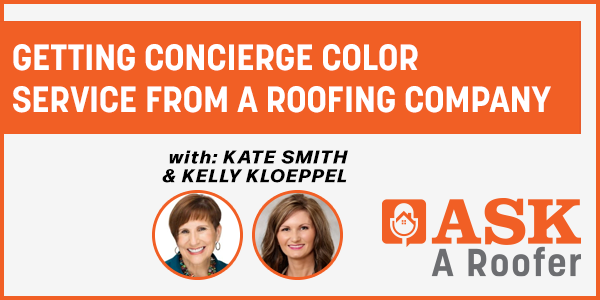
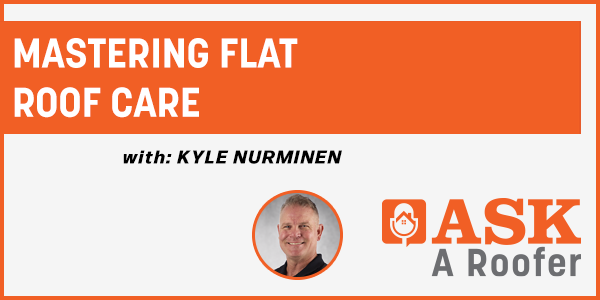
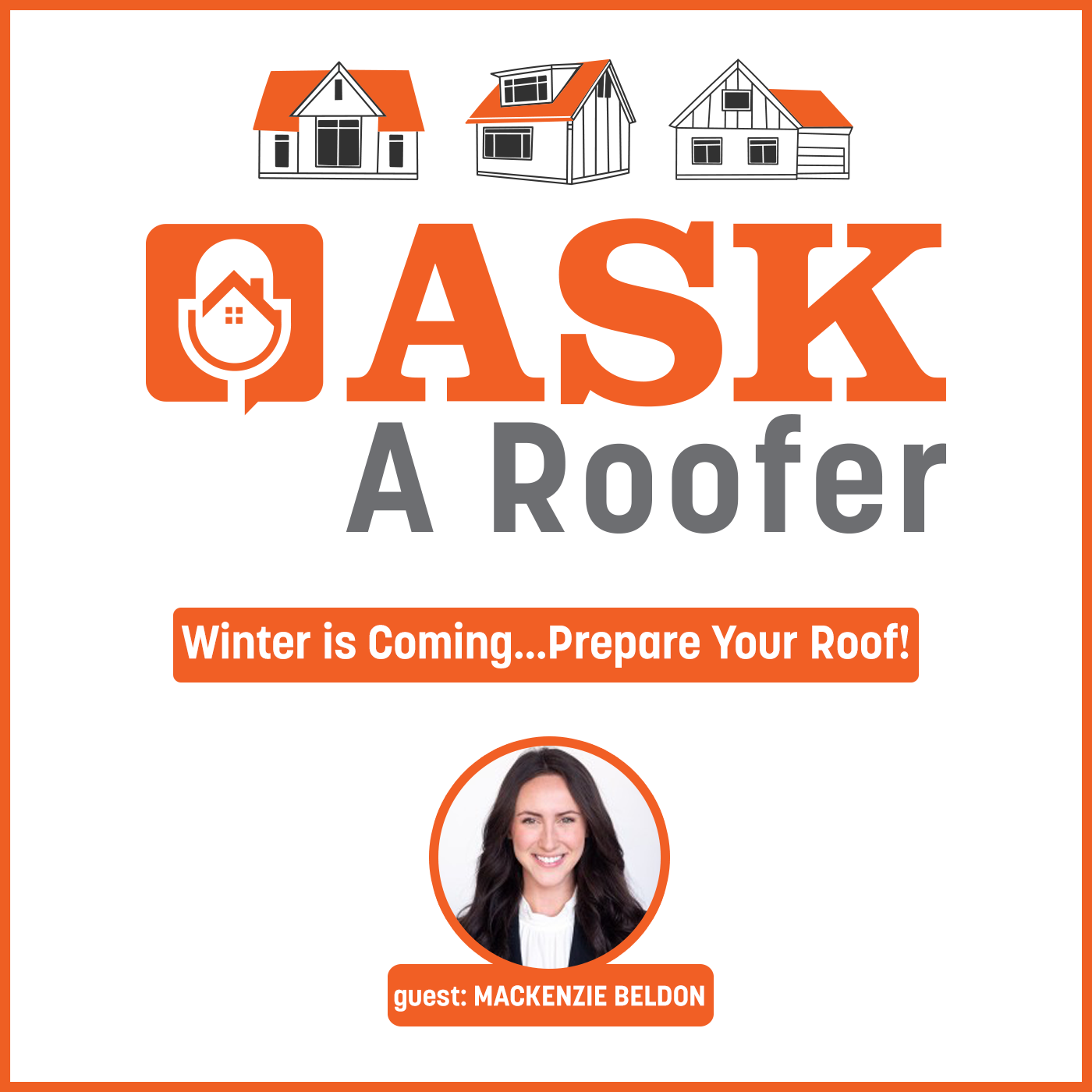

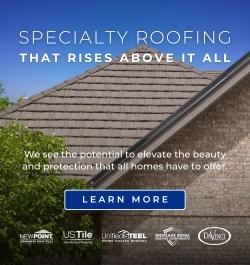
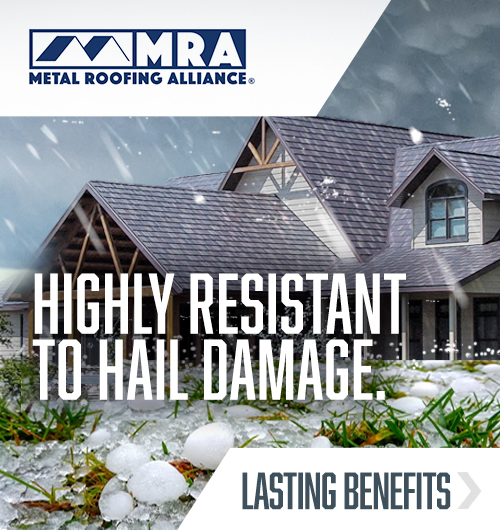



Comments
Leave a Reply
Have an account? Login to leave a comment!
Sign In